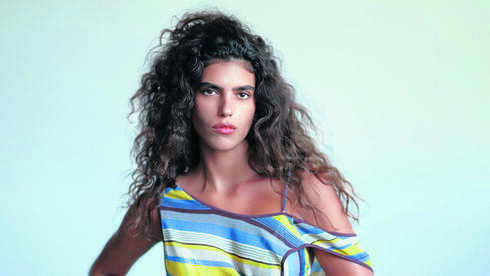She became Israel’s most successful model, but just as she reached the top, Sun Mizrahi found herself in the midst of a personal crisis. After nine years together, she separated from her husband, put her modeling career on hold, and went searching for absolute freedom.
In a candid interview with Ynet, she speaks about her father, Israeli soccer player Alon Mizrahi’s reaction to her divorce, why she turned down an offer to appear on Big Brother Israel and how she has been rebuilding herself.
9 View gallery
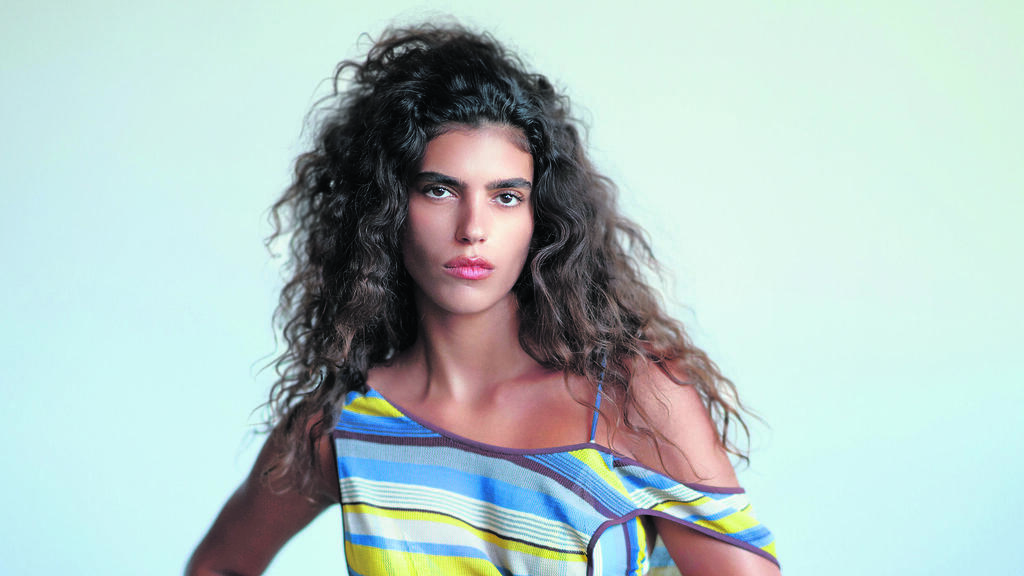

Sun Mizrahi
(Photo: Shai Cohen Arbel)
In frozen New York, the confident walk of Sun Mizrahi—who in just three years became one of the most prominent Israeli faces on the international stage, with campaigns for Chanel, Stella McCartney, Bottega Veneta, Christian Dior, Zara and Victoria’s Secret—came to a sudden halt. Inside, she says, she was unraveling.
“I felt like I needed to say stop,” she recalls. “I wasn’t at the right measurements, I developed acne and I was in an emotional crisis. I was supposed to be radiant and uplifting, but I was in a state of mourning. Together with my agents, we decided I needed to breathe. After four years of working like an animal, I was allowed a moment for myself.”
What was going on inside you?
“I’d say there was a gap in my connection to myself. All the exclamation points I once had about who I am turned into question marks—including my marriage. I needed to allow myself more freedom, and that led, among other things, to the divorce. The relationship just didn’t fit us anymore.”
She met her ex-husband at 17, married him five years later, and spent nine years together, four of them married, often splitting time between Israel and Paris. The end came in one decisive conversation, the culmination of two years of therapy and self-discovery.
“The day I felt ready to talk, I was tense. I said things as they were—I don’t even remember the wording. It was very hard. The emotional separation had started earlier, but I didn’t have the tools to communicate it. By the time I brought it up, I had already gone through a very long process of thought and reflection, without any impulsiveness.
“No one knew what I was going through—maybe just my therapist. Not my family, not my friends. I was terrified of what it would bring—people saying I had ‘the beauty queen syndrome,’ our families’ disappointment, friends in shock. If I’d heard outside objections, it would have made it even harder.
“The breakup was very discreet until one item came out—leaked, not by me—and suddenly everyone knew, even extended family. The media coverage wasn’t pleasant, but there were more urgent matters to deal with, like where I was going to live.”
9 View gallery
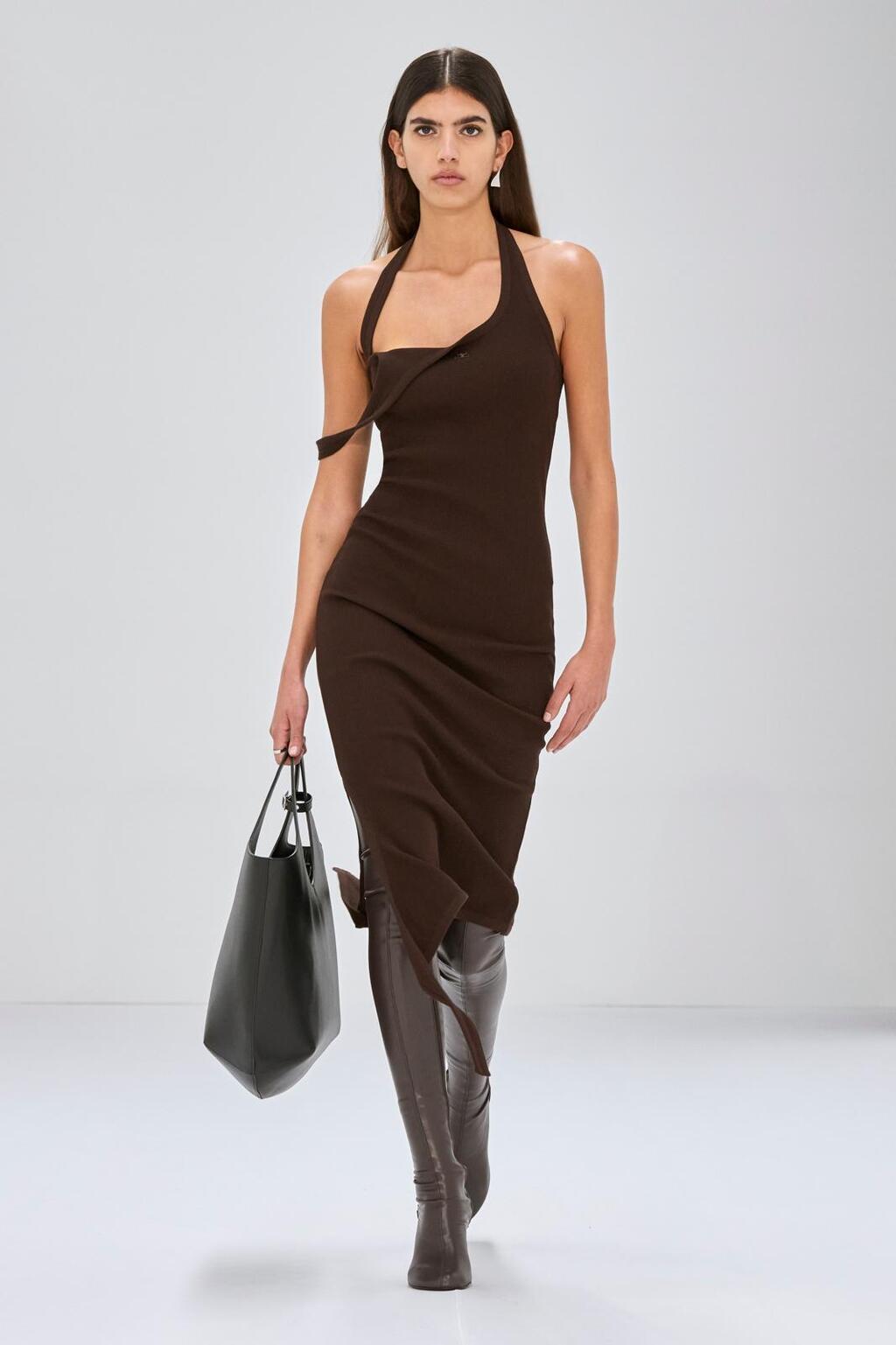

(Photo: Armando Grillo, courtesy of Victoria’s Secret)
The pain stayed with her for months. “It ate me up back then, and even now there’s guilt and deep sorrow—that this decision affected all of us, even our dog. If I had known the pain it would cause everyone, maybe I wouldn’t have done it.
“But then we would have stayed in a relationship where neither of us was happy. After the breakup I moved to an apartment in Jaffa I found instantly, on the exact street I wanted. I thought to myself—was that a sign?”
Did the word ‘divorce’ scare you? People your age usually just ‘break up,’ which sounds less dramatic.
“The title never scared me. I would tell new people right away that I was divorced. It didn’t carry a negative aura for me. People often associate divorce with failure, but to me failure is only living a life you’re not satisfied with. Being ‘divorced’ isn’t my identity or my value, it’s just the name of a bureaucratic process I went through.
“I don’t buy into ideas like, ‘What, I wasted nine years of my life?’ On the contrary, everything had to happen exactly the way it did. I have no regrets. It gave me so much. At 20, I couldn’t do what I can today. Back then, marriage suited me—it was a success for its time. I acted on what I knew then, and what I’ve learned since is the real success. It’s all part of growing pains.”
Was the separation connected to your career choice?
“Of course modeling played a role. I can’t say whether our relationship would have been different if I’d stayed a student at Shenkar or waited tables, but modeling pushed me into personal growth on steroids. It threw me straight into the deep water of life—in a good way.”
Sun, 27, grew up in Ramat Hasharon, the daughter of Vered Miller (who later remarried) and Alon Mizrahi, a star of Israel’s national soccer team in the 1990s. Israelis first recognized her as “the daughter of,” but abroad she became the muse of trendy French designer Simon Porte Jacquemus and was named one of the world’s most successful and highest-paid models.
Her career began almost by accident: photos taken by a Shenkar College of Engineering, Design and Art lecturer, where she was studying fashion design, caught the attention of an agent who saw her international potential. Within a year she was flying between fashion capitals, walking for the biggest houses, dropping out of Shenkar and celebrating her first wedding anniversary far from home.
In past interviews, you said marriage gave you stability amid all the travel and fame.
“That’s true, and also not. The split really began when modelling demanded constant flights and moving between countries. We lived together in Paris, and I felt guilty it wasn’t working. I was in a period where I needed a lot of freedom and didn’t know how to give it to myself.
9 View gallery
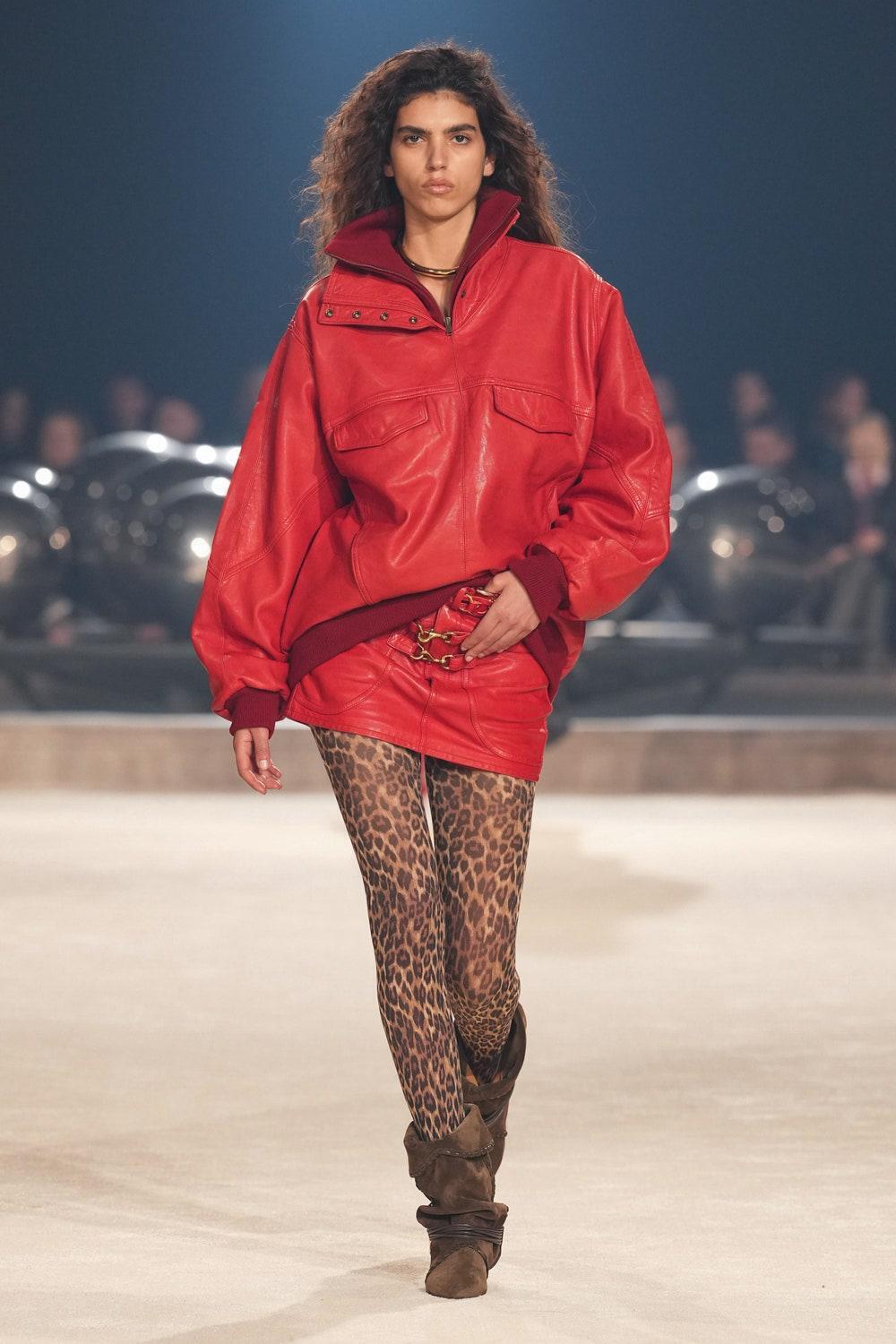

(Photo: Stephane Cardinale – Corbis/GettyImages)
“He was an amazing husband the whole way, but if I say I only had doubts about our marriage in its last year, it wouldn’t be accurate. Questions had been there for years, but I didn’t have the courage to face them. It took time to realize the gap between how I felt and what the relationship allowed me to feel—and that neither of us should stay in something like that.”
What do you mean by ‘gap’?
“He was my teenage love. We grew up and developed together, but I felt there’s something about mature love—when you choose each other later in life—that’s maybe more precise. The breakup came after I researched myself.
“I’ve always been a free spirit, and as I peeled back more and more layers, the feedback grew less positive. It became a little suffocating. I had changed, and I wanted to move more freely, dress differently.”
When did you start feeling it?
“There were trips where I felt it strongly—that I wanted to express myself more freely. I discovered myself, and people had trouble with the ‘new Sun,’ the one dancing in Instagram stories. Not just in the relationship, but also my family and followers asked questions.
“My need to say what I wanted, dress differently, meditate, dance in clubs—small nuances that seemed foreign—suddenly drew attention. At first we both tried to connect the worlds, to bring him closer to my spiritual side. But it created an inauthentic dynamic, and the realization that neither of us should live a life we don’t connect to.
“I’m passionate about life. I didn’t want either of us to live untrue to ourselves. There are things I want to feel at the highest level in a relationship. I wasn’t willing to settle for ‘that’s just how marriage is.’ It’s either you live or you’re walking dead. For two years I worked on myself to understand what was happening.
“I told myself I wasn’t leaving the marriage to find someone else. I accepted that maybe I’d die alone, raise a child alone, face the ‘jungle out there’ people talk about. But that was still better than staying in something that wasn’t right for either of us.”
9 View gallery
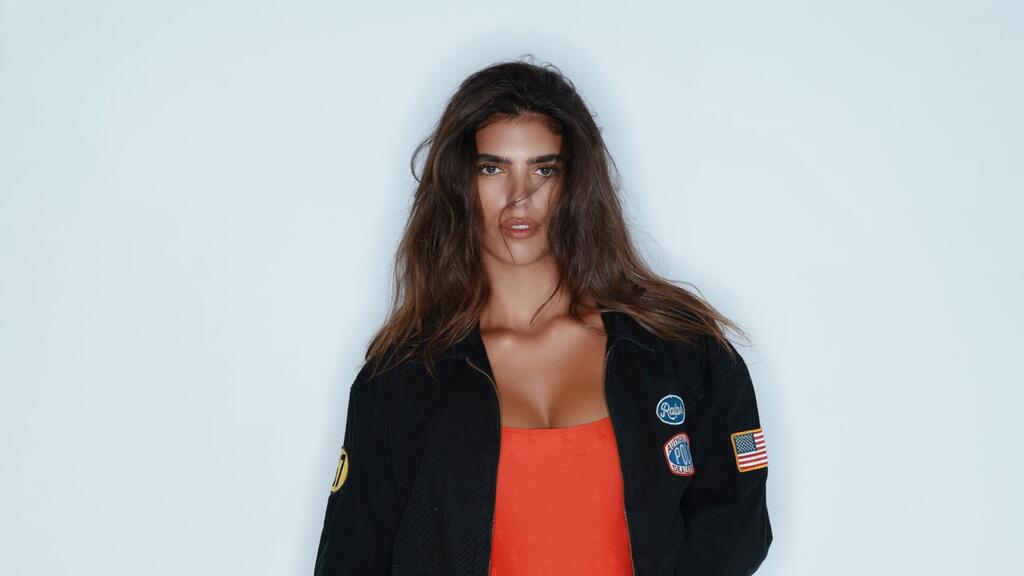

(Photo: Shai Cohen Arbel)
“There were periods in recent years when I thought maybe I didn’t want children,” she says. “My sister, who heard me say that, told me recently: ‘Sun, you don’t want kids? You? You love children, it’s part of your essence.’
“In hindsight, I realized it was the relationship I was in that made me feel that way. Mostly, I just didn’t have the tools. Getting married so young—it almost feels irresponsible now. I’m not sure anymore that anyone can feel truly ready at that age.”
Did the “beauty queen syndrome” myth follow you?
“I first heard about it from my therapist. It didn’t affect me much because I knew it wasn’t true, and everyone close to me knew it too. Whoever thinks otherwise, I won’t correct them. I don’t need to please anyone. I just want to live my life in absolute freedom and happiness.”
And suddenly you had to face the cost of that freedom.
“Exactly. I know how to carry pain, to breathe through it. But what was harder was dealing with other people’s pain—pain I had a role in causing. That’s what broke me, what made me cry for days and nights. I’d meditate at home and it would all come up there.
“Guilt is probably something I carry from previous lives, not just this marriage and divorce. I’ve learned not to take responsibility for pain that doesn’t belong to me. It also helped me understand that pain isn’t inherently bad—what matters is how we respond to it. The pain itself isn’t pleasant, but it can make you grow.”
Did your parents or those around you try to slow you down?
“Everyone did. It took them a moment to realize how serious it was. My mother gave me a very strong hug. I saw how deeply she felt me, how much she wanted the best for me, and from then on our bond grew stronger. She had divorced herself and understood exactly what I was going through.
“Her instinctive reaction was: ‘I felt you, I’m not surprised.’ And of course, the rumors flew—people saying the divorce was because I’m a lesbian, because I’d changed, because I was cheating, because I’d lost it. My mom worried about the impact all of that might have on me. There were nights she cried.
“Dror, her husband, called me once and said she wasn’t doing well and asked if I could talk to her. I invited them for breakfast at my apartment, drew her a little childlike picture and framed it for her. She still keeps it by her bed. I explained that sometimes I needed distance, because other people’s anxieties seep in, and I needed space to ground myself and choose me.”
9 View gallery
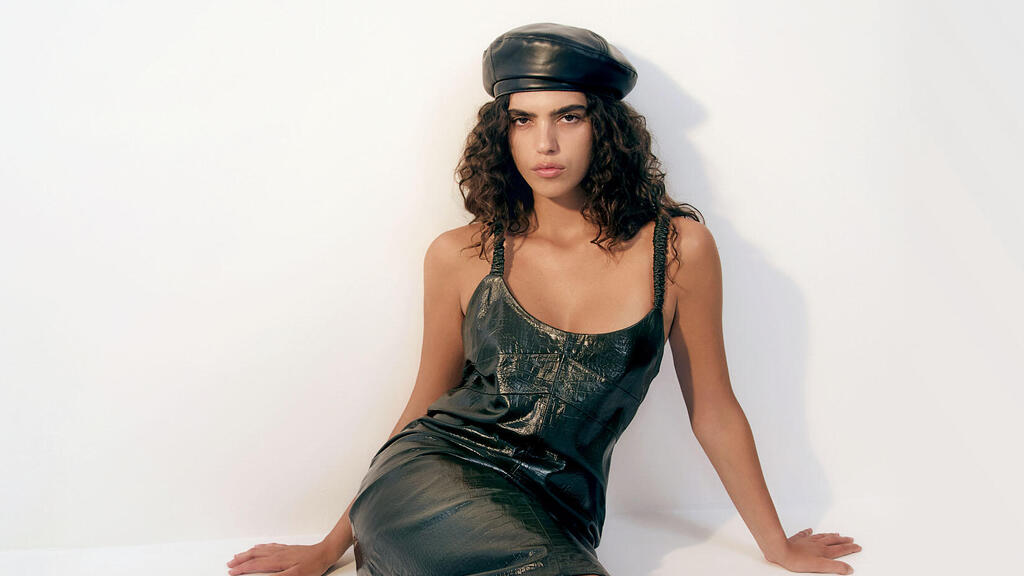

And your father?
“It was a bit harder for him to hear, but we got through it. It shook him, he was worried, and I understood that. He would come over for coffee almost every week, listen, and respect it when I needed space. His first reaction was supportive, but then I had to explain that this wasn’t just a crisis—it was my new reality.
“My parents hadn’t known me as single for years, and it was hard for them to swallow the divorce. But first and foremost, I got their embrace, and I value that. Over the years, I’ve seen that I know best what makes me happy.
“Even when I dropped out of Shenkar to model, there was shock, not immediate support. But I knew it was the right move for me, a kind of inner calling. That same inner calling is what carried me through this too, no matter what others thought.”
Today, as we meet near her apartment in Jaffa, she is looking back on a year of dismantling and rebuilding. A long journey abroad freed her from commitments, letting her surrender fully to freedom—though at a cost.
“At first, I let life and work numb me, until I finally allowed myself to sink into the pain and face it. There were so many breakdown moments. Even now, you’ve caught me in a week where everything is hitting me at once. I’ve always been the strong one, the grown-up holding everything together, never leaning on others.
“Even this past year, I felt I had to stay strong, that I couldn’t afford to fall apart. When my friends, even my mom, told me they were worried, I’d say: ‘I know I’m supposed to be depressed now, but I don’t want to collapse.’ This past week I’ve been feeling the release of tension—panic attacks I’d never experienced before.
“And I’m not scared of them. I know they’re healthy, necessary. Everyone who knows me says: ‘Sun, your life is on steroids. You live at 300% of everyone else’s pace—both in work and in your personal life. Give yourself permission.’”
How was it, suddenly knowing yourself as single after nine years in a relationship?
“Moving into my own apartment was fine—I’m used to being alone from modeling, from traveling. But suddenly I was dealing with an accountant on my own, running a household alone, things my ex-husband used to do.
9 View gallery
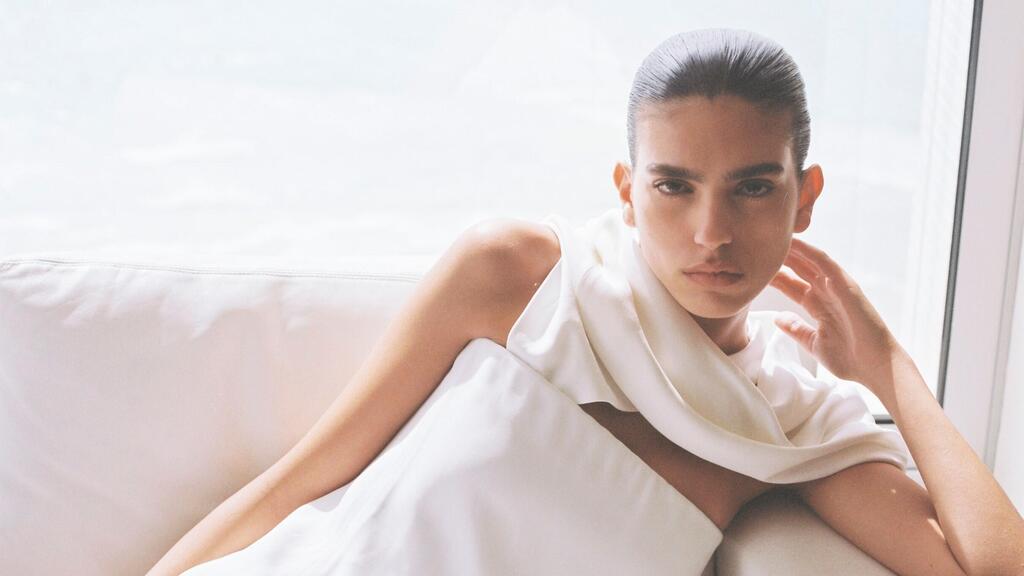

“And it wasn’t just carrying my own pain—it was also the pain of those around me, along with judgment and blame. During that time, I was very much alone, by choice. I knew I needed to find my center and tune out the background noise. Having always had a strong inner world helped me support myself.”
Where do things stand now?
“The process is done, apart from small bureaucracies. Even the rabbinical divorce is behind us, and that was one of the most important parts for me because I believe in energy. Knowing I was still bound by that contract, and he too, felt wrong. Closing that circle brought me relief.
“I can say this has been the most significant year of my life. I was scared, I rebelled, I experimented. I traveled the world for nearly six months—Marrakech, Greece, Mexico, Ibiza, and in between Paris, New York, Milan. Not just for work, but for me. It felt like that moment after the army when you get a brief taste of freedom that won’t come again.
“Traveling alone is something too—suddenly you have no commitments to anyone, not even to the dog we had, who stayed with him. I knew these months were for me, to not be angry at myself for how I eat, how I spend, or how my day unfolds. It was my time for complete freedom.”
What did that freedom look like?
“I ate a lot more—some of it emotional eating—and everything was more intense because I had no routine. I read more, wrote more, exercised, painted, danced. I allowed myself to fall apart. Only in the past two months did I feel like I could breathe again and wanted stability.
“But experiencing everything to the extreme was necessary. I went through so many losses—my ex-husband, our dog, the life we built together, my grandfather who passed away. Relationships, life as I knew it, even work.
“My body changed too—I gained about 18 pounds (8 kilos) in three months. I remember arriving in New York and telling my agents everything about what I was going through, knowing it would affect my work.”
“In a way, I stopped doing everything people expected of me,” Mizrahi admits. “That’s why I call it a rebellion. People tell me it took courage, and it did. It also took trust—trusting myself and remembering that my worth isn’t tied to whether I work less for a while. The most frustrating part was that while I gained weight and developed acne for the first time in my life, I actually felt amazing.
9 View gallery
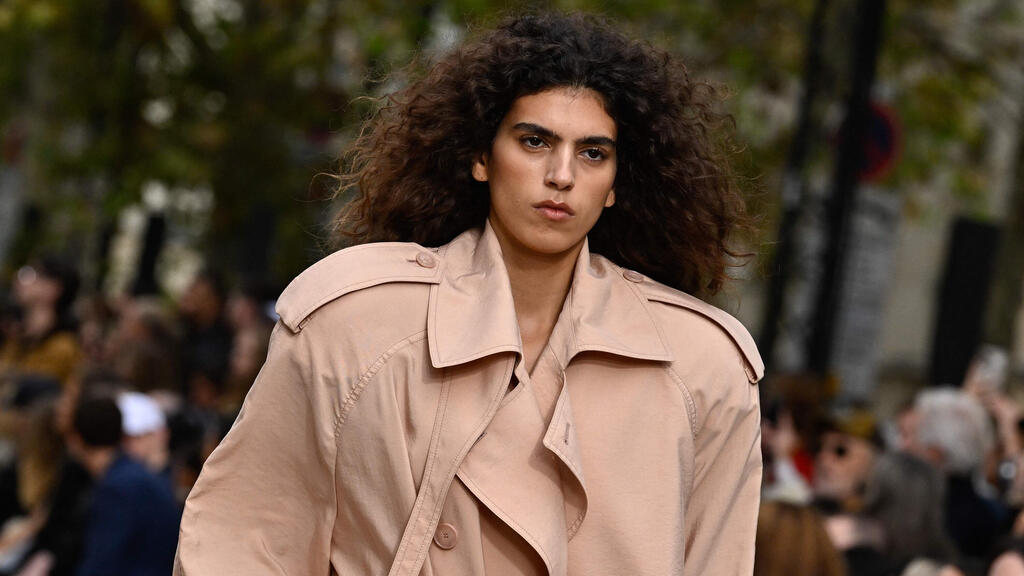

(Photo: JULIEN DE ROSA/AFP)
“I felt sexy, powerful, like a woman. There was a moment when I asked myself if modeling still fit my values. My agents reassured me: ‘Take your time, come back when you’re ready, when you’re back in your size.’ They were sensitive, but I told them, ‘Don’t shield me.
“Talk straight about the consequences of this break. My body, mind and spirit feel healthy. I won’t be offended if you say I can’t work right now because of my weight—I know that myself.’”
What went through your mind when you considered leaving modeling?
“Modeling became part of my identity—how I see myself and how others see me. So I prepared for another kind of loss if it ended. I made a mental chart: what I’d lose and what I’d gain. I’d lose fame, travel, meeting new people. Money I trusted I could make elsewhere. But I’d gain authenticity, my truth, and being in a good relationship with myself.”
The fact that she entered modeling only at 22, with what she calls a “strong inner center,” spared her from familiar stories of cramped model apartments, lines of cocaine on bathroom counters, and extreme diets.
“I was never drawn to that world. It was important for me to build my foundation and learn how to protect myself in the industry. But the gap between worlds was huge. One day you’re walking alongside Kylie Jenner and her sister Kendall, and the next you’re at a hotel party with fifty people, including Leonardo DiCaprio, and he’s introduced to you and shakes your hand.
“But was I impressed? Not really. I remember one night with a group of younger models who were using drugs. I told them, ‘I’ll be your mom tonight.’ I didn’t touch anything, like always. We were taken backstage at these parties—music blasting, everyone dancing, but they were high and I wasn’t.
“I felt like an alien. My sensitivity made me feel pain for people numbing themselves with drugs, or women using men for validation. That environment often left me hurting inside.”
Abroad, your career soared, but in Israel you were still mostly known as “the daughter of Alon Mizrahi, the soccer star.”
“True. And I wanted to build my own identity—for myself and for him. In Israel, industries blur into each other. Modeling mixes with entertainment, instead of standing as its own profession. It opens doors for models to become actresses or influencers, but it makes things less professional.
“It’s like a chef trying to cook both Italian and Asian at once. I prefer specialization. I don’t want to be famous just to be famous—I want to be recognized for my achievements. In Israel, only a niche crowd of fashion people knew me, and that was fine. If I wanted exposure, I could’ve gone on Big Brother as ‘Alon Mizrahi’s daughter,’ or Survivor. But that was never what I wanted.”
9 View gallery
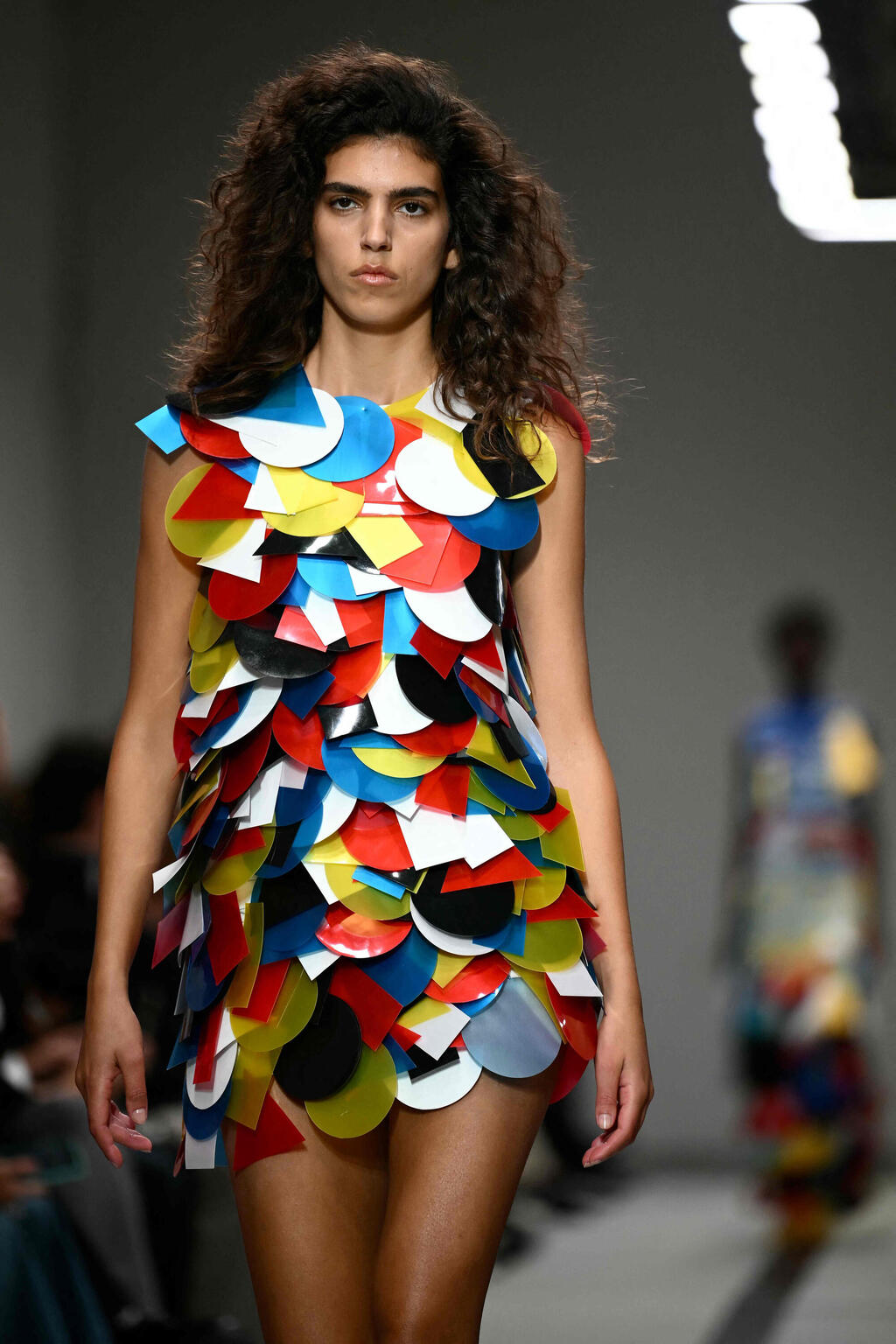

(Photo: Marco BERTORELLO/AFP)
Modeling also brought financial security.
“It gave me confidence. Not that I didn’t have it before—I’ve been working since I was young. Financial anxiety was never present in my life, even though we had ups and downs growing up.
“I know I have value to offer, and if money is a value, then someone will want to pay for it. Modeling set a standard for me. If I fly to New York for two days of work, I want to go business class, and I can. But I can also buy shoes at a market in Morocco and love them just as much as Roberto Cavalli heels.”
This upcoming fashion week, Mizrahi will return to the runways of Milan and Paris. “It’s fun to work with the same brands again and again. I’d love to do another beauty campaign, maybe Chanel, which I love under Matthieu Blazy. Maybe even return to Victoria’s Secret.”
“The most precious thing I’ve gained from this profession is the people who touched my heart, and I theirs. Like with designer Simon Porte Jacquemus. At my first casting for his brand, he was there barefoot. The next day on set, when he heard my name, he told me he’d painted a giant sun in his childhood room and even had a sun tattoo.
“We formed a bond—he asked me to open his show, and later, between shoots, he’d send me Instagram messages. He even named his son after me. Casting director Piergiorgio Del Moro was also central to my career—responsible for my big breakthrough, and later almost a friend. That made me feel seen—not just as beautiful, not just as another model, but as Sun.”
Do you worry about the current backlash against Israel?
“I see people I follow posting things that don’t honor Israel, and I want to believe it won’t affect my work. If it does, then maybe it wasn’t meant to be. I don’t want to work somewhere I’d have to hide my identity or be judged for where I was born.”
Some say that once a model takes a break, she might not return—especially if her body changes.
“No. I’ve always been slim. Not the skinniest, but slim enough. And I was never going to be one of those models starving themselves. I’m passionate, like I said. I love to cook, eat, taste. Even as a model, I ate everything. I have a freedom that not everyone knows how to digest.
“When I post videos of myself dancing on Instagram, people ask if I’m okay: ‘But you’re divorcing, right?’ Of course, I’m also crying at home sometimes—but it’s not either-or. You can be both.”
Now, Mizrahi tries to preserve as much freedom as possible in her daily routine. “I work out every day. I go to the beach every day—sometimes twice, morning and sunset. I’m working on personal projects, spending time with friends and seeing someone new.”
9 View gallery
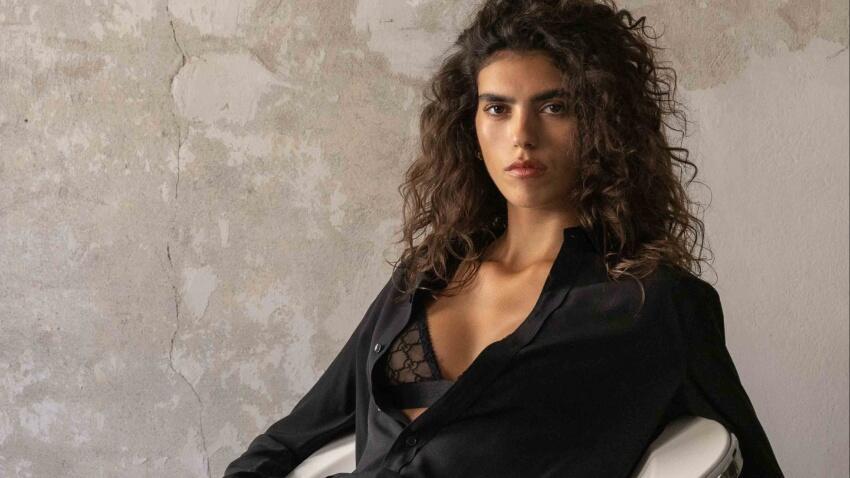

How did you meet him?
“My best friend reconnected with a childhood friend. I’d been hearing about him. One day she scheduled us back-to-back; he was late to her, and that’s how we met. There was an instant click.
“I admire men who approach women in real life, in an elegant, confident, respectful way. That’s how he did it, and it won me over. He wasn’t my type at all—I thought I’d end up with someone older, maybe not from here. But the way he approached me was magical.”
What energy did he find in you?
“It came when I wasn’t chasing it. I’d already realized my value doesn’t depend on being in a relationship. He asked if I had a free evening, and I said right away, ‘Maybe tomorrow morning for coffee?’ After the kind of people who had been hitting on me before, this was different.
“He adores who I am and my energy, really admires it. After the divorce, I told everyone around me that maybe I’d never marry again, maybe I wouldn’t even have children. I didn’t know how much I trusted the whole concept anymore. And suddenly, lately, I hear myself speaking differently.”

